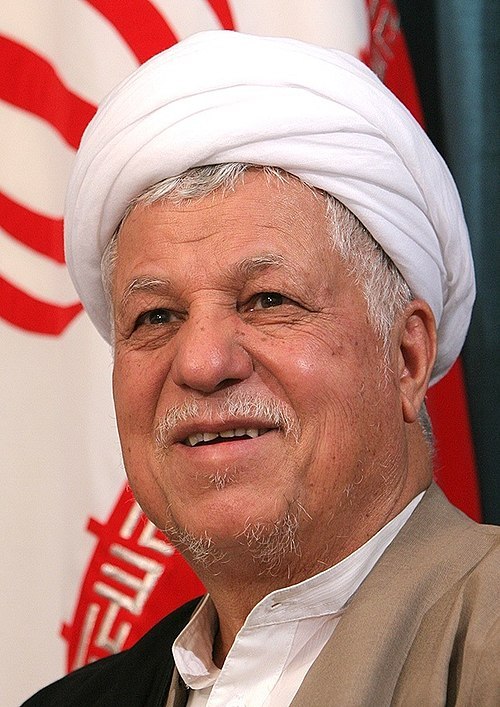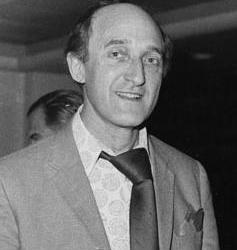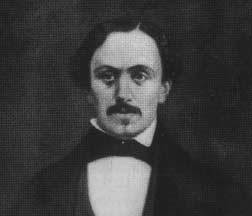#m after watergate
Explore tagged Tumblr posts
Text
this literally has nothing to do with him but if you look at these lyrics through my beautiful mind you will get it

does anyone out there see it. very im so halloween like the halloween masks? can anyone hear me. gotta keep those channels clean? and orher SOBERING things? im drowning by numbers? my halo is bent?? its a fat fucking LIE??? at least i tried? AT LEAST I TRIED?
#txt#im thinking the media im thinking watergate im thibking checkers speech im thinking this that and the other im thinking public opinion of hi#m after watergate#<- insane person#lyrics#us presidents#anyway im cleaning my nixon playlust up and little lies started playing#TELL ME LIESSS TELL ME SWEET LITTLE LIESS#<- might get rid of it though#well see#it doesnt really have anything to do with him it just makes me laugh. TELL ME TELL ME LIES OH NO NO YOU CANT DISGUISE YOU CANT DISGUISE NO Y#OU CANT DISGUISE TELL ME LIES TELL ME SWEET LITTLE LIES
1 note
·
View note
Text
Judge Cannon Dismisses Classified Documents Case Against Trump - The New York Times
Deep State Panic Button:


(Now Arrest Merrick Garland & Jack Smith!)
"Judge Dismisses Classified Documents Case Against Trump
Judge Aileen Cannon ruled that the entire case should be thrown out because the appointment of the special counsel who brought the case, Jack Smith, had violated the Constitution. Her decision is sure to be appealed.
The Alto Lee Adams Sr. U.S. Courthouse in Fort Pierce, Fla., where Judge Aileen Cannon is hearing the classified documents case.Credit...Saul Martinez for The New York Times
By Alan Feuer July 15, 2024, 10:05 a.m.
A federal judge dismissed in its entirety the classified documents case against former President Donald J. Trump on Monday, ruling that the appointment of the special counsel, Jack Smith, had violated the Constitution.
In a stunning ruling, the judge, Aileen M. Cannon, found that because Mr. Smith had not been named to the post of special counsel by the president or confirmed by the Senate, his appointment was in violation of the appointments clause of the Constitution.
The ruling by Judge Cannon, who was put on the bench by Mr. Trump, flew in the face of previous court decisions reaching back to the Watergate era that upheld the legality of the ways in which independent prosecutors have been named. And in a single swoop, it removed a major legal threat against Mr. Trump on the first day of the Republican National Convention, where he is set to formally become the party’s nominee for president.
Mr. Smith’s team will almost certainly appeal the ruling by Judge Cannon throwing out the classified documents indictment, which charges Mr. Trump with illegally holding onto a trove of highly sensitive state secrets after he left office and then obstructing the government’s repeated efforts to retrieve them."

#lawfare#free trump#banana republic#praise jesus#jack smith#department of injustice#merrick garland#classified documents#deep state#soros#joe biden#jill biden#barack obama#eric holder#susan rice#get trump
12 notes
·
View notes
Note
i've seen couple of fics in your lists that took time in 20th centuries or like the past in general. do you mind if you put them in one list tho?
yes i tend to read a lot of them hehe
prepare yourself, it's gonna be a very long list
Medieval? 20th century fics? 1920s 1930s 1940s 1950s 1960s 1970s etc au
Adore You by isthatyoularry
M, 66k
“We invited our new acquaintances from uptown. You’ve simply got to meet their oldest son!” said his mother with a flourish, and suddenly it became abundantly clear as to why his parents had so adamantly demanded he join them in Deansville for the entirety of the summer.
Against his wishes, Harry spends the holidays at his family’s summer estate, and is reluctantly pulled into a courtship he didn’t ask for. Harry doesn’t want to get married, but Louis does. They don’t fit, but then again they really, really do.
Vaguely set in the 1920’s. Headpieces, jazz, fashionable canes, and flapper dresses, and that.
Chasing Empty Spaces by Lis (domesticharry)
E, 79k
The year is 1934 and Harry Styles was to inherent the largest tobacco firm in the south. His parents have picked out the “perfect” girl for him to marry and he has the privilege of receiving the highest education possible. The problem was, Harry hadn’t realized he didn’t actually want any part of that future until he met a mechanic named, Louis Tomlinson.
Through Eerie Chaos by MediaWhore
G, 102k
For as long as anyone can remember, Old Hillsbridge Manor has always been believed to be haunted. Everyone in the village agrees and keeps a respectful, fearful, distance. New in town after a bad breakup and an internship that led to disappointment rather than a permanent job, Harry Styles figures taking pictures of the decrepit building could be a great new creative project. Or at least a much-needed distraction while he searches for a job and crashes at his parents’ new house. No one warned him about the apparitions though; about the music, the laughter, the people who flicker and vanish when you call after them, the echoes of a past that should be long gone… Harry has never believed in spirits but even he can admit that there’s something weird going on. What starts as mere curiosity evolves into a full-blown investigation and soon enough, Harry finds himself making friends with an aristocrat from the 1920s and struggling with finding the best way to tell him that he’s dead. The Ghost Hunter AU where Niall lives to prove ghosts are real, Zayn is a skeptical librarian and Harry gets caught up in a century-old mystery and catches feeling in the process.
Landslide by aimmyarrowshigh, spibsy
E, 143k
The year is 1976. In November, Jimmy Carter will take control of the White House. Americans are meeting Laverne & Shirley at their apartment in Milwaukee. Hotel California diverges from the reign of Kool & the Gang. And the FBI is still reeling from the repercussions of Watergate, the tragedy at Wounded Knee, Operation Family Secrets, and the strategic terrors of the anti-cult movement. That's what Special Agent Harry Styles has been told is the basis of his mission to an abandoned farmhouse in rural New Hampshire. With his hair grown out long and his shirt untucked, he's going undercover to do reconnaissance on suspected cult leader Louis Tomlinson, who has led a group of people out into the middle of nowhere, leaving no record of the life he'd had before. All Harry knows is what the agency gave him: Tomlinson's name, and instructions to figure out what he's doing with the eleven people he brought with him. In the year that Harry spends undercover and under Louis Tomlinson's wing, he learns more than he ever expected.
Here In The Afterglow by fondleeds
NR, 88k
“If you hadn’t noticed, I don’t have many friends,” Louis whispers, the blossom of insecurity in his stomach unfurling and clawing its way into his throat. Harry is silent for a long time, and then he speaks; a soft, slow uncurl that makes Louis’ stomach shake. “I’ll be your friend.” - 1970’s AU. In a tiny town in Idaho, Louis’ life is changed forever by the arrival of a curious stranger.
Victorian Boy by audreyyheart
E, 101k
Victorian AU. Harry the virgin Duke of Somerset knows little of love, while Louis the sly Duke of Warwick knows too much. When the two dukes come together for the Bilsdale fox hunt in York, Harry finds himself drawn into Louis' bed. But when secrets from Louis' dark past come to light, Harry fears that the fox isn't the only one being hunted.
Ever Since I Tried Your Way by flowercrownfemme
E, 25k
Harry had been kissed before, but never like this. He’d shared sweet, curious kisses behind bleachers and in soda shop booths, one or two more daring ones in cars parked on dark suburban streets, but the girls he’d kissed had never filled him with the desperation that erupted from Louis’ touch. He parted his lips and pulled him closer, as though he could breathe Louis straight into his lungs, as if he could swallow him. He wanted to consume Louis the way he consumed the body and blood of Christ. He wanted to place Louis on his tongue and feel him dissolve into a frothy mess of starch and saliva. He wanted to gulp him down until his teeth were stained purple and he was drunk on him. He wanted him in some violent holy way that made his hands shake where they were twisted in Louis’ shirt. In 1949 Harry left his bride at the altar, running away from the only life he'd known. When a kindhearted farmer offers him a ride in his truck and a place to sleep the two find themselves inexplicably drawn together. Isolated on Louis' farm with nobody but a field of dairy cows to intrude, the men are finally able to explore the parts of themselves they've spent their lives hiding away.
the last person on earth i could ever marry by igotfeels
E, 50k
A Pride and Prejudice AU, where Harry is fed up with rich men and Mr Tomlinson is a very rich man.
Love you in the dark by perzikje
E, 10k
The story of a historical wedding night: in which Louis is quite unaware as to just how clueless his brand new husband is about sex. They try their best to figure it out together.
An Invincible Summer by Brooklyn_Babyloon
E, 44k
Never content to stay in one place for long, a few months down south researching for his novel seemed like an idyllic, slow-paced summer to Louis. He wasn't ready for the blistering heat, the backbreaking work of watermelon picking, or how stifling the attitudes in rural Georgia would feel. And he definitely hadn’t anticipated falling in love with the farmer’s son. The summer of 1946 would turn out to be everything worth writing about.
a perpetual sunrise by moonshinelouis (lunarflwrs)
M, 31k
Louis Tomlinson lives the archetype of a successful man: he has a big white house, a gorgeous wife, and adorable daughters. Happiness is a superfluity, really. And his daughters' dimpled piano teacher is nothing more than a sinful distraction. 1950s AU.
Atlas At Last by louisandthealien
M, 83k
He doesn’t know what he had been expecting out of the road trip itself besides burping contests and too much shitty gas station food with Oli and Stan, but in the brief moment before Harry ambles up his driveway, Louis idly wonders if this is about to become some sort of Gay Coming of Age story. Maine to California in ten days. In which Zayn’s an open-shirt hippie they meet somewhere in Ohio, Liam’s the pastor’s son running away from home, and Niall’s the number they call on the bathroom wall. It’s 1978. Harry and Louis are just trying to get to San Fran in time for the Queen concert.
Box of Rain by indierection (amandamoraisa)
M, 26k
Louis is definitely not the next Muhammad Ali, just an illegal boxer with no prospects for the future. Harry is a hippie Uni student that in his free time informally works as a ring boy. Somehow he manages to always get tangled on the ropes and at the same time charm the pants off of all the fighters and patrons. They meet in Manchester in 1977 and, even though they don't seem to have much in common, they... Well, they just sort of click, really. - The one with a friendship ruiner game of Monopoly, Harry always ending up in jail for wanting to save the world, Louis face to face with his archenemy and way too many references to 70s music. Also staring Zayn as a brooding anarchist punk rocker, Liam as the nerdiest and nicest boxer in all Britain and Niall as a bookmarker that can easily convince people to bet fortunes, but can't make his friends realise their mutual crush on each other.
please leave a like and reblog
#louis tomlinson#larry stylinson#fic recs#harry styles#larents#fic rec#larry fic recs#medieval au#20th century au
30 notes
·
View notes
Text
History
October 20, 1818 - The U.S. and Britain agreed to set the U.S.- Canadian border at the 49th parallel.
October 20, 1935 - Mao Zedong's 6,000 mile "Long March" ended as his Communist forces arrived at Yanan, in northwest China, almost a year after fleeing Chiang Kai-shek's armies in the south.
October 20, 1944 - During World War II in the Pacific, General Douglas MacArthur set foot on Philippine soil for the first time since his escape in 1942, fulfilling his promise, "I shall return."
October 20, 1968 - Jacqueline Kennedy married multi-millionaire Greek businessman Aristotle Onassis, ending nearly five years of widowhood following the assassination of her first husband, President John F. Kennedy.
October 20, 1973 - The 'Saturday Night Massacre' occurred during the Watergate scandal as President Richard M. Nixon fired Special Prosecutor Archibald Cox and Deputy Attorney General William Ruckelshaus. Attorney General Elliot Richardson resigned. A firestorm of political protest erupted over the firings leading to widespread demands for Nixon's impeachment.
Birthday - British architect Christopher Wren (1632-1723) was born in Wiltshire, in southwestern England. Considered one of the greatest minds of his time, he designed St. Paul's Cathedral and 52 churches for the City of London. His secular buildings included the "new" wing of Hampton Court near London and Greenwich Hospital, now the Royal Naval College.
1 note
·
View note
Text
Week 7 comparison: similarities and differences: "The Texas Chain Saw massacre by Tobe Hoppers 1974" and "Deep Red by Dario Argento 1975"
Short Essay #1: The Texas Chain Saw massacre by Tobe Hoppers 1974
For week 6 I decided to watch The Texas Chain Saw massacre by Tobe Hoppers 1974. I picked to watch the film because I love horror film, I have never seen it and its a classic American horror slasher all should watch.
The Texas Chain Saw massacre is a 1974 American horror film produced and directed by Tobe Hooper. One big similarities between this film and Deep red is it being a horror film, but with it is its differences is The Texas Chain Saw massacre was an American horror film with the killer using a chain saw and Deep Red being an Italian horror film with its killer using a hatchet. Both films are unique on their own kills, actors, the feelings you get from watching both films, and they both stand out in the horror gene, where I have never seen a film like them.
For The Texas Chain Saw massacre by Tobe Hoppers 1974 many critics would say that Texas Chain Saw massacre is bloody, violent and gruesome, even being banned in many states. From a review post by Roger Ebert he says “The Texas Chainsaw Massacre” is as violent and gruesome and blood-soaked as the title promises -- a real Grand Guignol of a movie. It’s also without any apparent purpose, unless the creation of disgust and fright is a purpose. And yet in its own way, the movie is some kind of weird, off-the-wall achievement. I can’t imagine why anyone would want to make a movie like this, and yet it’s well-made, well-acted, and all too effective." ( Roger Ebert)
Another fine difference from The Texas Chain Saw massacre and Deep Red is the box office numbers. With The Texas ChainSaw massacre by Tobe Hoppers 1974 having a budget of less than $140,000 but making $30,860,378 million with still having a growth today. With Deep Red it made ₤3,709 billion (Italy) which is $629,903 US dollar and I couldn't find its budget.
During 1974 a major historical event that happened was when US President Richard Nixon stepping down (got impeached) after the Watergate scandal. The Watergate Scandal was a 1972 break in at the Democratic National Committee headquarters in the Watergate apartment complex that President Nixon tried to cover up, when failed he was later impeached being the first president to happen to.
I wanted to add this clip from Texas Chain Saw because it was an unexpected first kill in the film, with Kirk not even getting a chance to run and just like in Deep Red its first kill was right at the beginning of the film, being unexpected, and both being bloody and gruesome.
Short Essay #2: Deep Red by Dario Argento 1975
For week 7 I picked again another horror film but this one being foreign and has many bloody, violent, and gruesome kills like Texas Chain Saw.
Deep Red (Profondo rosso) more known as The Hatchet Murders, is a 1975 horror film directed by Dario Argento. Deep red is about a psychic medium being murdered ( Macha Meril) with Macha dying her neighbor Marcus Daly a pianist, feels he need to solve the case, being the one to see the murder. The film is filled with strange music at weird parts of the film but is enjoyable to listen to. Unlike The Texas Chain Saw massacre with it award silence scene with little to no music.
An article named Deep Red (1975) written by JPRoscoe says "Argento is one of those directors that makes movies that you remember, and Deep Red is no different. The movie is filled with squeamish moments that sometimes look fake, but also hold a gross realism to them. Deep Red has some grueling and terrifying moments that make it a must for horror movie fanatics." ( JPRoscoe)
I would agree that both Deep Red and The Texas Chain Saw massacre had wonderful directors that could make you remember their films from their gross, gruesome, and terrifying moments.
Deep Reds movie poster really caught my eye, from the creepy doll hanging and scary body in the back compared to The Texas Chain Saw massacre, being creepy to but doesn't stand out like Deep Red does.


During the time the film Deep Red came out a historical event from 1975 that was happening was The Vietnam War ending on April 30th, 1975, after lasting 8 years, with many killed it finally ended.
youtube
Finally for Deep Red I wanted to include this scene that toward the end of the film. When I watched this scene from the film, it was so unexpected. It was creepy and terrifying and I hope no one in life ever has to have this happen to them.
Overall both films stood out to me with weird twists and turns, gruesome kills and scenes. I have never seen anything like them and I hope they both get more recognition. I was very impressed by both films and enjoyed watching both, I would highly recommend them to any film lovers that love horrors and twists. Both films had their differences but were same in a lot of ways. I'm excited to see what others think and I hope they enjoy it as much as I did.
5 notes
·
View notes
Text
Events 11.1 (after 1950)
1950 – Puerto Rican nationalists Griselio Torresola and Oscar Collazo attempt to assassinate US President Harry S. Truman at Blair House. 1951 – Operation Buster–Jangle: Six thousand five hundred United States Army soldiers are exposed to 'Desert Rock' atomic explosions for training purposes in Nevada. Participation is not voluntary. 1952 – Nuclear weapons testing: The United States successfully detonates Ivy Mike, the first thermonuclear device, at the Eniwetok atoll. The explosion had a yield of ten megatons TNT equivalent. 1954 – The Front de Libération Nationale fires the first shots of the Algerian War of Independence. 1955 – The establishment of a Military Assistance Advisory Group in South Vietnam marks the beginning of American involvement in the conflict. 1955 – The bombing of United Air Lines Flight 629 occurs near Longmont, Colorado, killing all 39 passengers and five crew members aboard the Douglas DC-6B airliner. 1956 – The Indian states Kerala, Andhra Pradesh, and Mysore are formally created under the States Reorganisation Act; Kanyakumari district is joined to Tamil Nadu from Kerala. Delhi was established as a union territory. 1956 – Hungarian Revolution: Imre Nagy announces Hungary's neutrality and withdrawal from the Warsaw Pact. Soviet troops begin to re-enter Hungary, contrary to assurances by the Soviet government. János Kádár and Ferenc Münnich secretly defect to the Soviets. 1956 – The Springhill mining disaster in Springhill, Nova Scotia kills 39 miners; 88 are rescued. 1957 – The Mackinac Bridge, the world's longest suspension bridge between anchorages at the time, opens to traffic connecting Michigan's upper and lower peninsulas. 1963 – The Arecibo Observatory in Arecibo, Puerto Rico, with the largest radio telescope ever constructed, officially opens. 1963 – The 1963 South Vietnamese coup begins. 1968 – The Motion Picture Association of America's film rating system is officially introduced, originating with the ratings G, M, R, and X. 1970 – Club Cinq-Sept fire in Saint-Laurent-du-Pont, France kills 146 young people. 1973 – Watergate scandal: Leon Jaworski is appointed as the new Watergate Special Prosecutor. 1973 – The Indian state of Mysore is renamed as Karnataka to represent all the regions within Karunadu. 1976 – Burundian president Michel Micombero is deposed in a bloodless military coup d'état by deputy Jean-Baptiste Bagaza. 1979 – In Bolivia, Colonel Alberto Natusch executes a bloody coup d'état against the constitutional government of Wálter Guevara. 1979 – Griselda Álvarez becomes the first female governor of a state of Mexico. 1981 – Antigua and Barbuda gains independence from the United Kingdom. 1982 – Honda becomes the first Asian automobile company to produce cars in the United States with the opening of its factory in Marysville, Ohio; a Honda Accord is the first car produced there. 1984 – After the assassination of Indira Gandhi, Prime Minister of India on 31 October 1984, by two of her Sikh bodyguards, anti-Sikh riots erupt. 1987 – British Rail Class 43 (HST) hits the record speed of 238 km/h for rail vehicles with on-board fuel to generate electricity for traction motors. 1991 – President of the Chechen Republic Dzhokhar Dudayev declares sovereignty of the Chechen Republic of Ichkeria from the Russian Federation. 1993 – The Maastricht Treaty takes effect, formally establishing the European Union. 2000 – Chhattisgarh officially becomes the 26th state of India, formed from sixteen districts of eastern Madhya Pradesh. 2000 – Serbia and Montenegro joins the United Nations. 2001 – Turkey, Australia, and Canada agree to commit troops to the invasion of Afghanistan. 2009 – An Ilyushin Il-76 crashes near the Mir mine after takeoff from Mirny Airport in Yakutia, killing all 11 aboard. 2011 – Mario Draghi succeeds Jean-Claude Trichet and becomes the third president of the European Central Bank. 2012 – A fuel tank truck crashes and explodes in the Saudi Arabian capital Riyadh, killing 26 people and injuring 135.
0 notes
Text

By Alan Feuer
Aug. 26, 2024
Federal prosecutors began their bid to resurrect the moribund classified documents case against former President Donald J. Trump on Monday, telling an appeals court in Atlanta that the trial judge had improperly thrown out the charges.
In a filing to the U.S. Court of Appeals for the 11th Circuit, the prosecutors argued that the judge, Aileen M. Cannon, erred last month when she handed down a bombshell ruling that dismissed the case on the grounds that Jack Smith, the special counsel who brought it, had been appointed to his job illegally.
The ruling by Judge Cannon, who was placed on the bench by Mr. Trump, stunned many legal experts for the way that it upended 25 years of Justice Department practice and flew in the face of previous court decisions about the appointments of special prosecutors reaching back to the Watergate era.
Issued on the first day of the Republican National Convention, where Mr. Trump formally accepted his party’s presidential nomination, Judge Cannon’s ruling also gave him a major legal victory at an auspicious political moment.
Mr. Smith’s appellate brief on Monday was merely the start of a legal battle that may end up at the Supreme Court and is likely to drag on until well after the election in November.
Should Mr. Trump win the election, he would have the power to fire Mr. Smith and could order the Justice Department to drop the appeal. Should he lose, the appeals process will determine whether he can still go to trial on the charges.
Should Mr. Trump win the election, he would have the power to fire Mr. Smith and could order the Justice Department to drop the appeal. Should he lose, the appeals process will determine whether he can still go to trial on the charges.
He was charged in June of last year with illegally holding on to a trove of classified national security materials after leaving office and then obstructing government efforts to retrieve them along with two co-defendants, Walt Nauta and Carlos De Oliveira, who worked for him at Mar-a-Lago, his private club and residence in Florida.
Since 1999, the appointment of special counsels has been governed by internal Justice Department regulations traditionally believed to have been based on at least four federal laws laying out the structure of the department and the powers of the attorney general.
That practice was adopted after Congress permitted the Independent Counsel Act, a law that specifically authorized and governed a different type of independent prosecutor, to lapse after the Whitewater investigation into President Bill Clinton.
But Judge Cannon rejected that tradition, ruling that none of the statutes governing the conduct of attorneys general actually gave them the authority to appoint special prosecutors like Mr. Smith. She also found that Mr. Smith’s appointment was illegal because he had not been named by the president and confirmed by the Senate.
Prosecutors with some measure of independence from the federal officials who appoint them have long been used to conduct sensitive political investigations. The practice reaches back to the days when the Confederate leader, Jefferson Davis, was charged with seditious conspiracy after the Civil War, Mr. Smith’s deputies reminded the appeals court.
The prosecutors claimed that Judge Cannon had “erroneously disregarded this history as ‘spotty’ or ‘ad hoc’” and paid too much attention to the minor iterations in the rules that have governed independent prosecutors over the decades.
Mr. Smith’s team also expressed concern that Judge Cannon’s refusal to recognize the validity of the way in which he got his job could “call into question hundreds of appointments throughout the executive branch.” And that, they wrote, “could jeopardize the longstanding operation of the Justice Department.”
Judge Cannon based her decision to toss out the documents case on the appointments clause of the Constitution. The clause requires presidential nomination and Senate confirmation for all principal officers of the government, but allows so-called “inferior officers” to be put in place by leaders of federal departments, including the attorney general, under the guidance of specific laws.
Mr. Smith’s deputies told the appeals court that Judge Cannon had made a mistake when she found that there were no laws that specifically authorized Attorney General Merrick B. Garland to name Mr. Smith to the post of special counsel in November 2022. Mr. Smith was given the job of investigating allegations that Mr. Trump had illegally held on to classified documents after leaving office and separate accusations that he had plotted to overturn the 2020 election.
In seeking to persuade the appeals court, Mr. Smith’s team pointed primarily to a Supreme Court case, United States v. Nixon, which found that the attorney general had the statutory power to appoint a special prosecutor to investigate the Watergate scandal in the early 1970s.
In her dismissal order, Judge Cannon took the position that the Supreme Court’s finding about the Watergate special counsel was a “nonbinding” aspect of the ruling, which largely focused on the separate issue of whether President Richard M. Nixon had to comply with a subpoena in the broader inquiry.
While the appellate brief by Mr. Smith’s team was chiefly designed to bring back the criminal charges against Mr. Trump, it also looked beyond the classified documents case to the long-term health of the Justice Department. Prosecutors worried that there could be devastating consequences to the department if Judge Cannon’s findings were left unchallenged.
“If the attorney general lacks the power to appoint inferior officers,” they wrote, “that conclusion would invalidate the appointment of every member of the department who exercises significant authority and occupies a continuing office, other than the few that are specifically identified in statute.”
0 notes
Text
On this day in Wikipedia: Monday, 8th January
Welcome, mirë se vjen, добре дошли (dobre doshli), добредојде (dobredojde) 🤗 What does @Wikipedia say about 8th January through the years 🏛️📜🗓️?

8th January 2023 🗓️ : Event - Jair Bolsonaro Supporters of former Brazil president Jair Bolsonaro storm the Brazilian Congress. "Jair Messias Bolsonaro (Brazilian Portuguese: [ʒaˈiʁ meˈsi.ɐz bowsoˈnaɾu]; born 21 March 1955) is a Brazilian politician and retired military officer who served as the 38th president of Brazil from 2019 to 2022. He previously served in the Brazil Chamber of Deputies from 1991 to 2018. Bolsonaro..."

Image licensed under CC BY 2.0? by Isac Nóbrega/PR
8th January 2017 🗓️ : Death - Akbar Rafsanjanī Akbar Hashemi Rafsanjani, Iranian politician (b. 1934) "Ali Akbar Hashemi Bahramani Rafsanjani (Persian: علی اکبر هاشمی بهرمانی رفسنجانی, romanized: ʿAlī Akbar Hāshemī Bahramānī Rafsanjānī; 25 August 1934 – 8 January 2017) was an Iranian politician and writer who served as the fourth president of Iran from 1989 to 1997. One of the founding fathers of the..."

Image licensed under CC BY 4.0? by Fars News Agency
8th January 2014 🗓️ : Death - Irma Heijting-Schuhmacher Irma Heijting-Schuhmacher, Dutch-Australian swimmer (b. 1925) "Irma Heijting-Schuhmacher (24 February 1925 – 8 January 2014) was a freestyle swimmer from the Netherlands who won two medals at the Summer Olympics. After having claimed the bronze medal in the 4 × 100 m freestyle relay in London (1948), she won the silver medal four years later in Helsinki,..."

Image licensed under CC BY-SA 3.0 nl? by Vogel, Carel L. de / Anefo
8th January 1973 🗓️ : Event - Watergate scandal Watergate scandal: The trial of seven men accused of illegal entry into Democratic Party headquarters at Watergate begins. "The Watergate scandal was a major political scandal in the United States involving the administration of President Richard Nixon from 1972 to 1974 that led to Nixon's resignation. The scandal stemmed from the Nixon administration's attempts to cover up its involvement in the June 17, 1972, break-in..."

Image by Indutiomarus at English Wikipedia
8th January 1924 🗓️ : Birth - Ron Moody Ron Moody, English actor and singer (d. 2015) "Ron Moody (born Ronald Moodnick; 8 January 1924 – 11 June 2015) was an English actor, composer, singer and writer. He was best known for his portrayal of Fagin in Oliver! (1968) and its 1983 Broadway revival. Moody earned a Golden Globe Award and an Academy Award nomination for the film, as well as..."

Image by London School of Economics
8th January 1824 🗓️ : Birth - Francisco González Bocanegra Francisco González Bocanegra, Mexican poet and composer (d. 1861) "Francisco González Bocanegra (January 8, 1824 – April 11, 1861) was a Mexican poet who wrote the lyrics of the Mexican National Anthem in 1853.He was born in San Luis Potosí, San Luis Potosí to Spanish soldier José María González Yáñez and Francisca Bocanegra y Villalpando, sister of the Foreign..."

Image
8th January 🗓️ : Holiday - Typing Day (International observance) "Typing Day (also known as International Typing Day or World Typing Day) is an annual event that falls on 8 January in Malaysia. It is co-organized by the STC (Speed Typing Contest) Team from JCI (Junior Chamber International) Mines and Team TAC (Typo Auto Corrector) to promote speed, accuracy and..."

Image licensed under CC BY-SA 3.0? by STCTeam
0 notes
Text
Denise Jackson Ford attends Emmy Awards ceremony following nomination of ‘American Reckoning' -- the film about her father’s unsolved murder

Denise Jackson Ford, daughter of slain civil rights leader, Wharlest Jackson Sr., attended the 44th Annual News & Documentary Emmy Awards ceremony for documentaries that included PBS Frontline’s “American Reckoning.” From left are Raney Aronson, Frontline’s executive producer and editor-in-chief; Yoruba Richen and Brad Lichtenstein, directors; and Ford.
By ROSCOE BARNES III
NATCHEZ, Miss. -- Denise Jackson Ford, daughter of slain civil rights leader, Wharlest Jackson Sr., recently travelled to New York to participate in the 44th Annual News & Documentary Emmy Awards ceremony for documentaries that included PBS Frontline’s “American Reckoning.”
The PBS program, which featured the story of Wharlest Jackson’s murder, aired on Tuesday, Feb. 15, 2022. It did not win an Emmy, but Ford said she was happy that it was nominated, and her participation was a good experience.
“Back in July of 2023, notifications were received from Brad Lichtenstein, president and producer of 371 Productions that our documentary film, ‘American Reckoning’ had been nominated for a News and Documentary Emmy in the category of ‘Outstanding Historical Documentary,’ Ford said.
“I had the privilege to accompany the team in New York on September 28 to be amongst the crowd of highly performed documentarians, finalists, and writers as well as producers.”
The awards ceremony was held at the Palladium Times Square in New York City. HBO Max’s “Hostages” won the Emmy in the “Outstanding Historical Documentary” category. Others in the running were CNN’s “Watergate: Blueprint for a Scandal,” Netflix’s “Meltdown: Three Mile Island,” and PBS’ “Waterman – Duke: Ambassador of Aloha.”
Ford said it was an honor to know that they made it to the nomination list for “such a great, prestigious award.” “I commend Brad Lichtenstein and Yoruba Richen, Stanley Nelson, along with the PBS Production team for the work, time and efforts put into this documentary to make history for our family,” Ford said.
“American Reckoning” was directed by Lichtenstein and Richen. The film is a feature-length documentary that tells the story of Wharlest Jackson Sr. and his murder in the Feb. 27, 1967, bombing of his truck by the Ku Klux Klan on Minor Street in Natchez. Jackson was the treasurer for the Natchez Branch of the NAACP. The Klan killed him, reportedly, because of his promotion to a job at Armstrong Tire and Rubber Company that had traditionally gone to white employees.
After multiple investigations, no one was ever held accountable for Jackson’s murder. The film presents new research as it chronicles the lives of Jackson’s family in their search for justice and for answers.
As noted by Frontline, “American Reckoning” presents “an extraordinary look at the civil rights era – the violence and resistance – through rare footage filmed more than 50-years ago in Natchez, Mississippi, and the still-unresolved killing of local NAACP leader Wharlest Jackson.”
The film, Frontline notes, “examines Black opposition to racist violence in Mississippi, spotlighting a little-known armed resistance group called the Deacons for Defense and Justice, woven alongside the Jackson family’s decades-long search for justice amid the ongoing federal effort to investigate civil rights era cold cases.”
In addition to Ford and her brother, Wharlest Jackson Jr., the film features Ser Seshsh Ab Heter-Clifford M. Boxley, and Stanley Nelson, author of two books on the Klan. “American Reckoning” can be viewed for free online.
The Emmy awards program honors programming content from over 2,300 submissions that originally premiered in calendar-year 2022, according to the program’s website. It noted the submissions are “judged by a pool of over 1,000 peer professionals from across the television and streaming/digital media news and documentary industry.”
1 note
·
View note
Text
kole — Today at 4:50 AM imagining myself as a yugo-american in cold war chicago i probably would have apathetically voted for Nixon in '72 after being a tepid Humphreyite voter in '68. Watergate would break my brain so hard i just stop paying attention altogether & drive myself in circles, until later down the line when i would take a look at Mondale & go "maybe i was wrong about you" [M] — Today at 4:53 AM honestly real If I'm thinking about my base instincts in 1960's California, I'm probably a Pat Brown head, discombobulated when he loses to Reagan, vote for Humphrey tepidly, support either Humphrey or Mcgovern solely out of spite for Yorty, and then fight for Jerry Brown to the hilt when Watergate destroys reality kole — Today at 5:08 AM oh, base instincts would be, like... being a progressive & falling hook line & sinker for the Wallace campaign because i am so world-rendingly desperate for any populist to promise me love again [M] — Today at 5:09 AM ACTUAL REAL AMERICAN That sentence should grant you instant citizenship, by the way
this exchange is making me giggle to myself really hard & has been throughout the day because i keep recalling it
1 note
·
View note
Text
Daniel Ellsberg, a military analyst who after experiencing a sobbing antiwar epiphany on a bathroom floor made the momentous decision in 1971 to disclose a secret history of American lies and deceit in Vietnam, what came to be known as the Pentagon Papers, died on Friday at his home in Kensington, Calif., in the Bay Area. He was 92. The cause was pancreatic cancer, his wife and children said in a statement. In March, Mr. Ellsberg, in an email message to “Dear friends and supporters,” announced that he had recently been told he had inoperable pancreatic cancer and said that his doctors had given him an estimate of three to six months to live. The disclosure of the Pentagon Papers — 7,000 government pages of damning revelations about deceptions by successive presidents who exceeded their authority, bypassed Congress and misled the American people — plunged a nation that was already wounded and divided by the war deeper into angry controversy. It led to illegal countermeasures by the White House to discredit Mr. Ellsberg, halt leaks of government information and attack perceived political enemies, forming a constellation of crimes known as the Watergate scandal that led to the disgrace and resignation of President Richard M. Nixon. And it set up a First Amendment confrontation between the Nixon administration and The New York Times, whose publication of the papers was denounced by the government as an act of espionage that jeopardized national security. The U.S. Supreme Court upheld the freedom of the press.
0 notes
Text
The Ruling Class Coups Against Nixon and Trump
Donald Trump with his legal team in court on April 4 after being indicted on 34 felony counts. [Source: usatoday.com] Jeremy Kuzmarov History as usual provides a cautionary lesson On August 8, 1974, Richard M. Nixon resigned from the presidency in disgrace with impeachment proceedings underway against him for the Watergate affair in which five men from his presidential election reelection…

View On WordPress
0 notes
Photo









Walter Cronkite (November 4, 1916 – July 17, 2009) Physique: Average Build Height: 6' (1.83 m)
Walter Leland Cronkite Jr. was an American broadcast journalist who served as anchorman for the CBS Evening News for 19 years. During the 1960s and 1970s, he was often cited as "the most trusted man in America" after being so named in an opinion poll. Cronkite reported many events from 1937 to 1981, including bombings in World War II; the Nuremberg trials; combat in the Vietnam War; the Dawson's Field hijackings; Watergate; the Iran Hostage Crisis; and the assassinations of President John F. Kennedy, civil rights pioneer Martin Luther King Jr., and Beatles musician John Lennon. He was also known for his extensive coverage of the U.S. space program, from Project Mercury to the Moon landings to the Space Shuttle. Cronkite is known for his departing catchphrase, "And that's the way it is", followed by the date of the broadcast. Cronkite died at his home on July 17, 2009, at age 92.
Cronkite was a lifelong newsman who became the voice of the truth for America as a nighttime anchorman. Married married for nearly 65 years and had three children, Cronkite was an accomplished sailor and enjoyed sailing coastal waters of the United States in his custom-built 48-foot Sunward "Wyntje". Now I wouldn't mind joining him in some nautical activities. And by nautical activities , I mean nau-dick-al activities. Hint. Hint... fucking on the boat.
And that's the way it is.
77 notes
·
View notes
Photo

got me an appetite, now i can taste it by velvetnoodle | E | 3401 It's a hot, June night when Louis spots the man in the crowd, and it's about to get hotter
eyelid of the sky by theankletattoo | E | 13013 Maybe he can let the burn settle down. Just until they are somewhere else where their underbellies are only theirs to attack and protect. au. harry loves, quiet and desperately.
under your thumb by strong | nr | 15345 where the year is 1975, louis is the leader of a misfit group of boys in venice, and harry is a roller skater who somehow finds his way in
give it to me (like you mean it) by lovergalore | M | 20772 "Shouldn't you be with your girlfriend? The girl every guy would kill to be with?" Louis asks, sharp and bitter and then promptly sucks his lips back into his mouth and turns away, staring resolutely down the lifeless, dark allyway. He hears Harry laugh again under his breath. "Would you kill to be with her?" Harry asks, lips quirking. Louis quickly look back at him, his eyes burning into him. "No." or an AU based in the 1970's where Louis has a boring life, working in a little cafe in Prague when the city's most famous celebrity returns with a mystery boyfriend who isn't such a mystery to him anymore.
The Changer and the Changed by homosociallyyours | M | 59496 It’s the spring of 1977 and Harry Styles has just moved to New York City after graduating college. She knows she’s a lesbian. She just needs to figure out how to meet other lesbians. Louis Tomlinson works at a popular women’s bookstore in the Lower East Side, Womon’s Direction, where she spends her days reading feminist literature, writing poetry, exchanging friendly barbs with her boss Niall, and dreaming of finding someone to love. When Harry and Louis meet, their connection is instantaneous. Slowly but surely, Louis welcomes Harry into her community of women. Stonewall veteran and old school butch Niall; Liam, a land dyke who’s moved to the city for love; and Zayn, a lesbian musician who’s been ostracized by a vocal part of women’s community for being trans, welcome Harry with open arms, ready to help her find her place in New York City’s bustling lesbian scene. It’s a time of growth for everyone involved.
Atlas At Last by louisandthealien | M | 83037 He doesn’t know what he had been expecting out of the road trip itself besides burping contests and too much shitty gas station food with Oli and Stan, but in the brief moment before Harry ambles up his driveway, Louis idly wonders if this is about to become some sort of Gay Coming of Age story. Maine to California in ten days. In which Zayn’s an open-shirt hippie they meet somewhere in Ohio, Liam’s the pastor’s son running away from home, and Niall’s the number they call on the bathroom wall. It’s 1978. Harry and Louis are just trying to get to San Fran in time for the Queen concert.
Here In The Afterglow by fondleeds | nr | 88649 “If you hadn’t noticed, I don’t have many friends,” Louis whispers, the blossom of insecurity in his stomach unfurling and clawing its way into his throat. Harry is silent for a long time, and then he speaks; a soft, slow uncurl that makes Louis’ stomach shake. “I’ll be your friend.” - 1970’s AU. In a tiny town in Idaho, Louis’ life is changed forever by the arrival of a curious stranger.
Landslide by aimmyarrowshigh, spibsy | E | 143297 The year is 1976. In November, Jimmy Carter will take control of the White House. Americans are meeting Laverne & Shirley at their apartment in Milwaukee. Hotel California diverges from the reign of Kool & the Gang. And the FBI is still reeling from the repercussions of Watergate, the tragedy at Wounded Knee, Operation Family Secrets, and the strategic terrors of the anti-cult movement. That's what Special Agent Harry Styles has been told is the basis of his mission to an abandoned farmhouse in rural New Hampshire. With his hair grown out long and his shirt untucked, he's going undercover to do reconnaissance on suspected cult leader Louis Tomlinson, who has led a group of people out into the middle of nowhere, leaving no record of the life he'd had before. All Harry knows is what the agency gave him: Tomlinson's name, and instructions to figure out what he's doing with the eleven people he brought with him. In the year that Harry spends undercover and under Louis Tomlinson's wing, he learns more than he ever expected.
#1970s#landslide#aimmyarrowshigh#spibsy#Here In The Afterglow#fondleeds#louisandthealien#atlas at last#homosociallyyours#the changer and the changed#lovergalore#give it to me (like you mean it)#strong#Under Your Thumb#theankletattoo#eyelid of the sky#velvetnoodle#got me an appetite now i can taste it
79 notes
·
View notes
Text
“The Conversation” by Francis Ford Coppola. WEEK THREE.
Nicole Daniels

The movie “The Conversation,” written by Francis Ford Coppola, in 1974, is a cerebral psychological film set in San Fransisco, California. The film follows Harry Caul, an intel bugger who lives a lonely yet intensely obsessional life, seeming only to focus on his career and its effects on himself and others. Harry is commissioned to follow an unknown couple, with the first scene playing out in San Francisco Square, the intel guys hidden in a pioneer glass van. Below is a photo of the couple being followed by Harry and his team attached with all sorts of listening gadgets. The couple's conversation is curiously mundane. A quote that is played in Harry's head many times throughout the film is one of the women that he is surveying in this scene. In it, she and the gentleman see a homeless man on a bench, to which the woman replies " He was once somebody's baby boy". I believe this struck Harry as intimate to his own life and Coppola may potentially have been relating this homeless man with Harry's own desperation.

I found Harry, Gene Hackman's character in this film significant because his intensity seems so streamlined, he could not seem to build human relationships, yet he does portray an intense sense of consciousness and guilt towards humanity. The Los Angeles Times describes the character Harry as “Brilliant, obsessive, deeply religious and possibly damaged, Harry is a master of surveillance technology, a legend his competitors call “the best bar none.” I agree with this and found Harry’s religious element to his character surprising and possibly his connection with a feeling of solace or stability. At one point Harry goes to confession pleading with the priest to be forgiven for hurting people inadvertently and for taking the Lord's name in vain.
Below is a photo of Harry Caul and a love interest of his, Amy, (played by actress Teri Garr). This was a scene that really stood out to me. It is his birthday in this scene. Harry shows up at Amy's apartment with a bottle of wine. She asks for him to open up to her for his birthday, to tell her a secret, to which he replies "I don't have any secrets." I found this interesting because Amy, although vying for Harry's intimacy is not able to break him emotionally. This shows his possible inability to separate himself from his work or personal demons. Harry eventually leaves Amy's building. As Harry walks out the door Amy dejectedly states, "I don't think I'm going to wait for you anymore."

The film has a very dream-like state. In one scene Harry is literally in a dream talking to one of his bugging subjects, (the woman of the couple in San Fransisco Square). In this scene, he says to her "I am not afraid of death, I am afraid of murder." This stuck out as his intense fear of his subject's demise. One of Harry's "east coast colleagues" mentions in another scene as they are having drinks that Harry was once in a case in which a family was murdered after his tapes were turned in. Harry seems to have had to compartmentalize this horror. Coppola could have been relating this to the United States and the separation between what is "right" and what we turn an eye to, specifically in 1974 shown in the Watergate scandal. Below is an account of the Watergate events.
I found this quote from Rotten Tomatoes to summarize my sentiments perfectly toward this film “As a thriller alone, The Conversation would be worth our attention. But as a thriller which also expresses our actual and collective nightmares, it absolutely demands it.” (Rotten Tomatoes). At a time when Watergate and the Nixion scandal were taking place across international waters, another scandal was at the forefront in Germany where German spy Günter Guillaume, who worked with Federal Chancellor, Willy Brant, was arrested for spying and intel gathering. This scandal caused Willy Brant to step down from his role as chancellor. There is an article below of the details.
These historical events among potentially many other reasons gave Coppola a stage to highlight the importance of privacy and also the swiftness by which it can be taken. Mr. Caul's boss, who is only known as "the director" throughout the film shows the illusive nature of bugging. Many of those gathering intel may not be aware, themselves of the intelligence or damage that will be accumulated as a product of their work. Harry Caul, on the other hand, seemed very aware of his hand in the damage that he could and had caused. The nature of the character "the director" was never apparent, it seemed to be a cheating wife ordeal, with one scene Harry delusionally believing he sees the wife being murdered. The very last scene shows Harry Caul ripping his apartment to shreds, even smashing a Virgin Mary statue. Harry's religion seemed his solace, this smashing of Mary symbolically seemed to convey that all faith and solace were lost to Harry at this point. The closing scene fades with Harry playing the saxophone alone in his room, maybe Coppola's homage to the power of music, signaling it may be the only thing left to heal or comfort him.
4 notes
·
View notes
Text
Events 6.23 (after 1950)
1951 – The ocean liner SS United States is christened and launched. 1956 – The French National Assembly takes the first step in creating the French Community by passing the Loi Cadre, transferring a number of powers from Paris to elected territorial governments in French West Africa. 1959 – Convicted Manhattan Project spy Klaus Fuchs is released after only nine years in prison and allowed to emigrate to Dresden, East Germany where he resumes a scientific career. 1960 – The United States Food and Drug Administration declares Enovid to be the first officially approved combined oral contraceptive pill in the world. 1961 – The Antarctic Treaty System, which sets aside Antarctica as a scientific preserve and limits military activity on the continent, its islands and ice shelves, comes into force. 1967 – Cold War: U.S. President Lyndon B. Johnson meets with Soviet Premier Alexei Kosygin in Glassboro, New Jersey for the three-day Glassboro Summit Conference. 1969 – Warren E. Burger is sworn in as Chief Justice of the United States Supreme Court by retiring Chief Justice Earl Warren. 1969 – IBM announces that effective January 1970 it will price its software and services separately from hardware thus creating the modern software industry. 1972 – Watergate scandal: U.S. President Richard M. Nixon and White House Chief of Staff H. R. Haldeman are taped talking about illegally using the Central Intelligence Agency to obstruct the Federal Bureau of Investigation's investigation into the Watergate break-ins. 1972 – Title IX of the United States Civil Rights Act of 1964 is amended to prohibit sexual discrimination to any educational program receiving federal funds. 1973 – A fire at a house in Hull, England, which kills a six-year-old boy is passed off as an accident; it later emerges as the first of 26 deaths by fire caused over the next seven years by serial arsonist Peter Dinsdale. 1985 – A terrorist bomb explodes at Narita International Airport near Tokyo, killing two and injuring four. An hour later, the same group detonates a second bomb aboard Air India Flight 182, bringing the Boeing 747 down off the coast of Ireland killing all 329 aboard. 1991 – Sonic the Hedgehog is released in North America on the Sega Genesis platform, beginning the popular video game franchise. 1994 – NASA's Space Station Processing Facility, a new state-of-the-art manufacturing building for the International Space Station, officially opens at Kennedy Space Center. 2001 – The 8.4 Mw southern Peru earthquake shakes coastal Peru with a maximum Mercalli intensity of VIII (Severe). A destructive tsunami followed, leaving at least 74 people dead, and 2,687 injured. 2012 – Ashton Eaton breaks the decathlon world record at the United States Olympic Trials. 2013 – Nik Wallenda becomes the first man to successfully walk across the Grand Canyon on a tight rope. 2013 – Militants storm a high-altitude mountaineering base camp near Nanga Parbat in Gilgit–Baltistan, Pakistan, killing ten climbers and a local guide. 2014 – The last of Syria's declared chemical weapons are shipped out for destruction. 2016 – The United Kingdom votes in a referendum to leave the European Union, by 52% to 48%. 2017 – A series of terrorist attacks take place in Pakistan, resulting in 96 deaths and wounding 200 others. 2018 – Twelve boys and an assistant coach from a soccer team in Thailand are trapped in a flooding cave, leading to an 18-day rescue operation.
0 notes